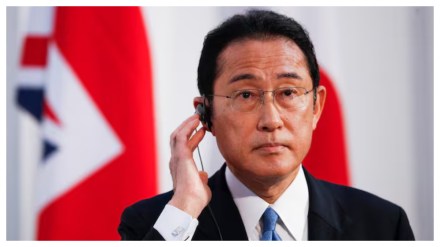In a surprising move on Wednesday, Japanese Prime Minister Fumio Kishida announced that he will not seek re-election in the upcoming September party leadership vote, setting the stage for a new prime minister to take over. Kishida, who assumed the roles of both Liberal Democratic Party (LDP) president and prime minister in 2021, has announced that he will resign at the conclusion of his three-year term. The LDP, holding majorities in both houses of parliament, will choose his successor.
Kishida, who has faced declining approval ratings and challenges from recent corruption scandals, emphasized the need for the LDP to present a renewed image. He said that he stepped down as it was the initial step to show that the LDP has changed. Kishida also urged potential candidates to actively engage in policy debates and work towards regaining public trust.
Despite his efforts to address key issues, such as energy policy, military expansion, and improving South Korea relations, Kishida has struggled with low support. U.S. President Joe Biden and U.S. Ambassador to Japan Rahm Emanuel praised Kishida’s leadership, highlighting his role in strengthening the U.S.-Japan alliance and fostering regional partnerships.
On the other hand, Kenta Izumi, leader of the Constitutional Democratic Party, criticized Kishida’s resignation as a strategic maneuver to deflect from ongoing corruption investigations. The LDP will soon decide the date for the leadership election, expected between September 20 and September 29. Potential candidates include party Secretary-General Toshimitsu Motegi, former Defense Minister Shigeru Ishiba, and other contenders from Kishida’s 2021 rivals.
The scandal, involving unreported political funds linked to party events, has tainted the LDP, exacerbated by its connections with the Unification Church and a series of local and Tokyo elections losses. Despite Kishida’s attempts to reform the party, the push for new leadership reflects broader dissatisfaction within the party and the electorate.
(With AP Inputs)
